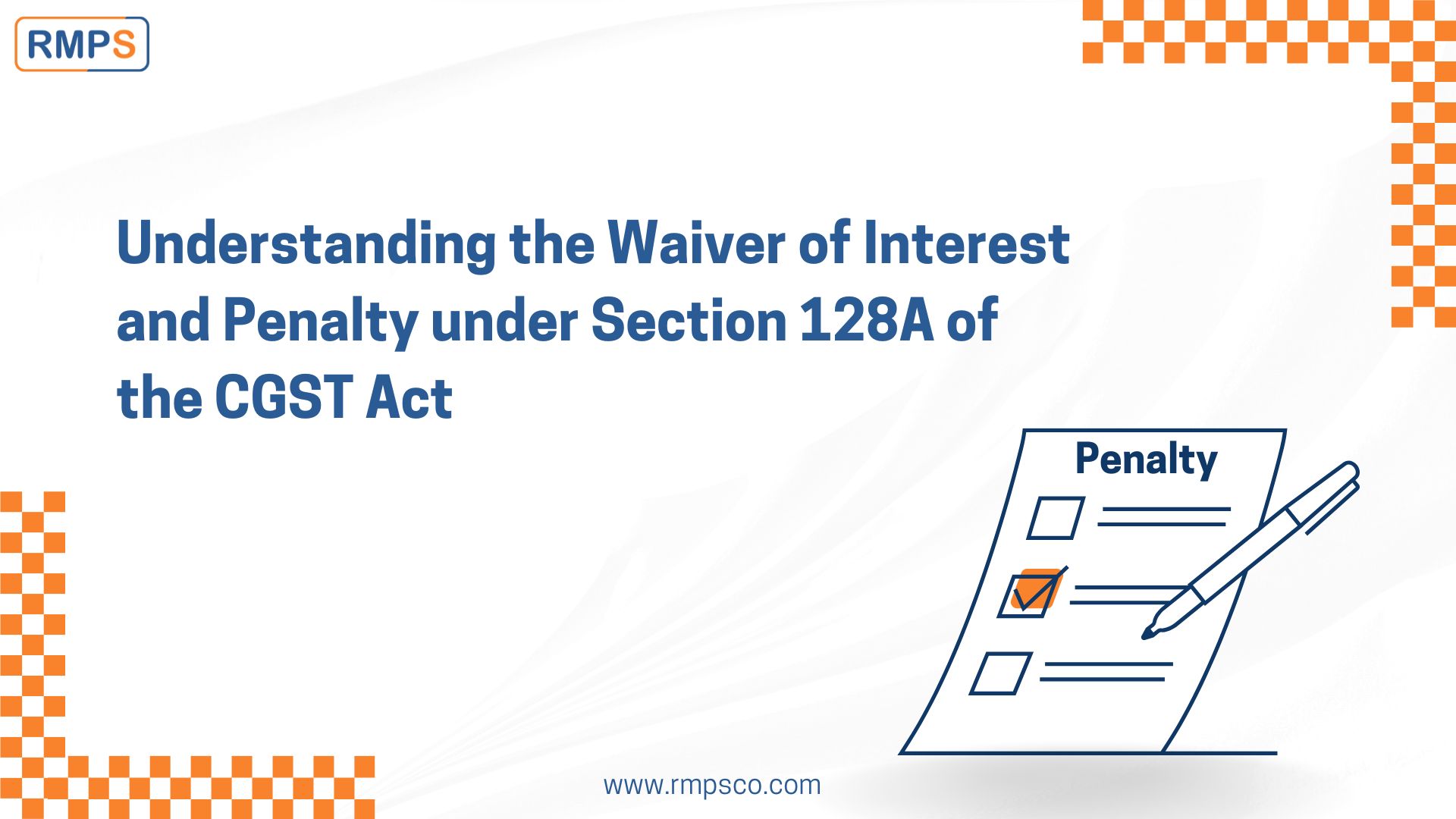
On October 15, 2024, the Indian government introduced Circular No. 238/32/2024-GST. This circular explains Section 128A of the CGST Act, 2017, which aims to help businesses reduce their tax burden. By using this waiver, businesses can avoid penalties and interest charges on specific tax demands. However, to take full advantage, businesses must meet certain conditions and deadlines.
What Does Section 128A Offer?
Section 128A gives businesses the opportunity to waive interest or penalties related to tax demands made under Section 73. It applies to the financial years 2017-18, 2018-19, and 2019-20. To qualify, businesses must pay the full tax amount by March 31, 2025.
Key Points of Section 128A:
- Eligible Period:
- First, this waiver only covers tax demands for the financial years mentioned.
- Additionally, businesses must pay the full tax amount by March 31, 2025, to benefit from the waiver.
- Moreover, if a redetermination order is issued, the business has six months from the date of the order to make the payment.
- How to Apply:
- To begin with, businesses need to file either GST SPL-01 or GST SPL-02, depending on the situation.
- Next, each tax notice or order requires a separate application.
- Furthermore, applications must be filed online within three months from the official notification date.
- Multiple Notices:
- In cases where businesses have multiple tax periods, separate applications must be filed for each.
- Also, any incorrect refunds received must be repaid in full.
- Payment Process:
- Businesses must make payments through FORM GST DRC-03 for notices that have not been resolved.
- Furthermore, businesses must follow special rules when adjusting input tax credits (ITC).
- Full Payment Required:
- It is essential to pay the full tax demand for the waiver to apply. Partial payments do not qualify.
- When multiple periods are involved, the waiver will only cover eligible periods.
- Handling Appeals:
- If the waiver application is rejected, businesses can still appeal. However, they must ensure full payment of the tax demand to secure approval.
Important Considerations
The Section 128A waiver only applies to tax demands under Section 73, not Section 74. Additionally, any pending appeals or writ petitions must be withdrawn before applying for the waiver.
If the tax demand spans multiple periods, the waiver will only apply to periods covered under Section 128A. Businesses must still pay any other tax demands in full.
Conclusion
The Section 128A waiver offers a valuable opportunity for businesses to reduce their tax liabilities. By following the correct procedure and paying the tax amount on time, businesses can benefit from waived interest and penalties. Therefore, it’s important to act before the deadline to avoid missing out.
For more information please refer below :
LinkedIn Link : RMPS Profile
This article is only a knowledge-sharing initiative and is based on the Relevant Provisions as applicable and as per the information existing at the time of the preparation. In no event, RMPS & Co. or the Author or any other persons be liable for any direct and indirect result from this Article or any inadvertent omission of the provisions, update, etc if any.
Published on: October 24, 2024
